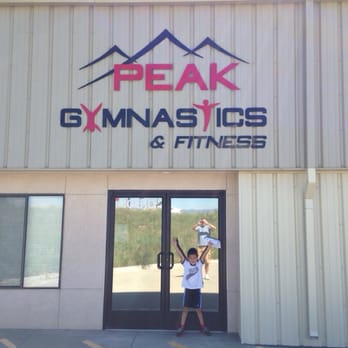7 Ways to Peak Gymnastics & Fitness Performance

In the world of gymnastics and fitness, achieving peak performance is a multifaceted pursuit that demands dedication, precision, and a holistic approach. Whether you’re a seasoned gymnast, a fitness enthusiast, or someone looking to elevate their physical capabilities, understanding the key components that contribute to excellence is crucial. Here, we explore seven proven strategies to help you reach the pinnacle of gymnastics and fitness performance.
1. Master the Fundamentals: Building a Strong Foundation

Every expert was once a beginner. In gymnastics and fitness, mastering the fundamentals is non-negotiable. Proper technique not only enhances performance but also prevents injuries. For gymnasts, this means perfecting basic skills like handstands, cartwheels, and bridges. For fitness enthusiasts, it involves understanding correct form in exercises such as squats, deadlifts, and push-ups. Dedicate time to drills and repetitive practice to ingrain these fundamentals into muscle memory.
Key Fundamentals to Focus On:
- Body Awareness: Develop proprioception to understand your body’s position in space.
- Core Strength: A strong core is the backbone of both gymnastics and fitness.
- Flexibility: Improved range of motion enhances performance and reduces injury risk.
2. Progressive Training: The Power of Incremental Growth

Peak performance isn't achieved overnight. Progressive training involves gradually increasing the intensity, duration, or complexity of your workouts. This approach ensures that your body adapts to new challenges without overexertion. For gymnasts, this might mean advancing from basic tumbling to complex flips. For fitness enthusiasts, it could involve increasing weights or trying advanced variations of exercises.
Steps to Implement Progressive Training:
- Set Clear Goals: Define what you want to achieve in the short and long term.
- Track Progress: Keep a training journal to monitor improvements.
- Adjust Regularly: Modify your routine based on performance and recovery.
3. Nutrition: Fueling Your Body for Success
What you eat directly impacts your performance. A balanced diet rich in proteins, carbohydrates, fats, vitamins, and minerals is essential. Gymnasts and fitness enthusiasts require adequate calories to sustain energy levels, support muscle repair, and enhance recovery. Hydration is equally important, as even mild dehydration can impair performance.
Nutritional Tips for Peak Performance:
- Pre-Workout Meals: Consume a mix of carbs and protein 1-2 hours before training.
- Post-Workout Nutrition: Prioritize protein and carbs to aid muscle recovery.
- Hydration: Drink water consistently throughout the day and during workouts.
4. Mental Resilience: The Mind-Body Connection
"The mind is the limit. As long as the mind can envision the fact that you can do something, you can do it, as long as you really believe it 100%." – Arnold Schwarzenegger
Mental toughness is as crucial as physical strength in gymnastics and fitness. Visualization, mindfulness, and positive self-talk can significantly enhance performance. Gymnasts often use mental rehearsal to perfect routines, while fitness enthusiasts can visualize lifting heavier weights or completing challenging workouts.
Strategies to Build Mental Resilience:
- Visualization: Picture yourself successfully executing skills or exercises.
- Mindfulness: Stay present and focused during training.
- Positive Affirmations: Replace negative thoughts with encouraging statements.
5. Recovery: The Unsung Hero of Performance

Recovery is often overlooked but is critical for sustained performance. Overtraining can lead to fatigue, injury, and burnout. Incorporating rest days, active recovery sessions, and sleep hygiene into your routine ensures your body has time to repair and rebuild.
Recovery Techniques to Consider:
- Sleep: Aim for 7-9 hours of quality sleep per night.
- Stretching and Mobility Work: Enhance flexibility and reduce muscle tension.
- Massage and Foam Rolling: Alleviate soreness and improve circulation.
6. Cross-Training: Diversifying Your Skill Set
Cross-training involves engaging in different activities to improve overall fitness and prevent plateaus. For gymnasts, this might include swimming or yoga to enhance flexibility and endurance. For fitness enthusiasts, incorporating gymnastics elements like handstands or core work can add variety and challenge.
Benefits of Cross-Training:
- Prevents Overuse Injuries: Reduces repetitive strain on specific muscle groups.
- Improves Overall Fitness: Develops a well-rounded physical capability.
- Keeps Training Exciting: Adds novelty and motivation to your routine.
7. **Coaching and Feedback: Leveraging Expert Guidance
Even the most talented athletes benefit from coaching. A qualified coach can provide personalized feedback, correct technique, and design tailored training programs. Whether you're working with a gymnastics coach or a personal trainer, their expertise can accelerate your progress and help you avoid common pitfalls.
How to Maximize Coaching Benefits:
- Communicate Openly: Share your goals, challenges, and feedback with your coach.
- Be Receptive to Criticism: Constructive feedback is a tool for improvement.
- Practice Consistency: Regular sessions yield the best results.
How often should I train to see improvements in gymnastics?
+For noticeable improvements, aim for 3-5 training sessions per week, focusing on a mix of skill work, strength training, and flexibility. Consistency is key, but ensure you include rest days to prevent overtraining.
What are the best exercises for core strength in gymnastics?
+Planks, hollow holds, leg raises, and Russian twists are highly effective for building core strength, which is essential for stability and control in gymnastics.
Can nutrition really impact my fitness performance?
+Absolutely. Proper nutrition provides the energy and nutrients needed for optimal performance, recovery, and muscle growth. A well-balanced diet can significantly enhance your fitness results.
How can I stay motivated during long training periods?
+Set small, achievable goals, celebrate milestones, and vary your routine to keep things interesting. Surrounding yourself with a supportive community or training partner can also boost motivation.
Is it necessary to cross-train if I’m already a gymnast?
+Yes, cross-training can improve overall fitness, prevent injuries, and enhance skills that complement gymnastics, such as endurance and flexibility.
Achieving peak gymnastics and fitness performance is a journey that requires dedication, strategy, and a holistic approach. By mastering fundamentals, embracing progressive training, fueling your body correctly, building mental resilience, prioritizing recovery, diversifying your training, and leveraging expert guidance, you can unlock your full potential. Remember, consistency and patience are your greatest allies on this path to excellence.



